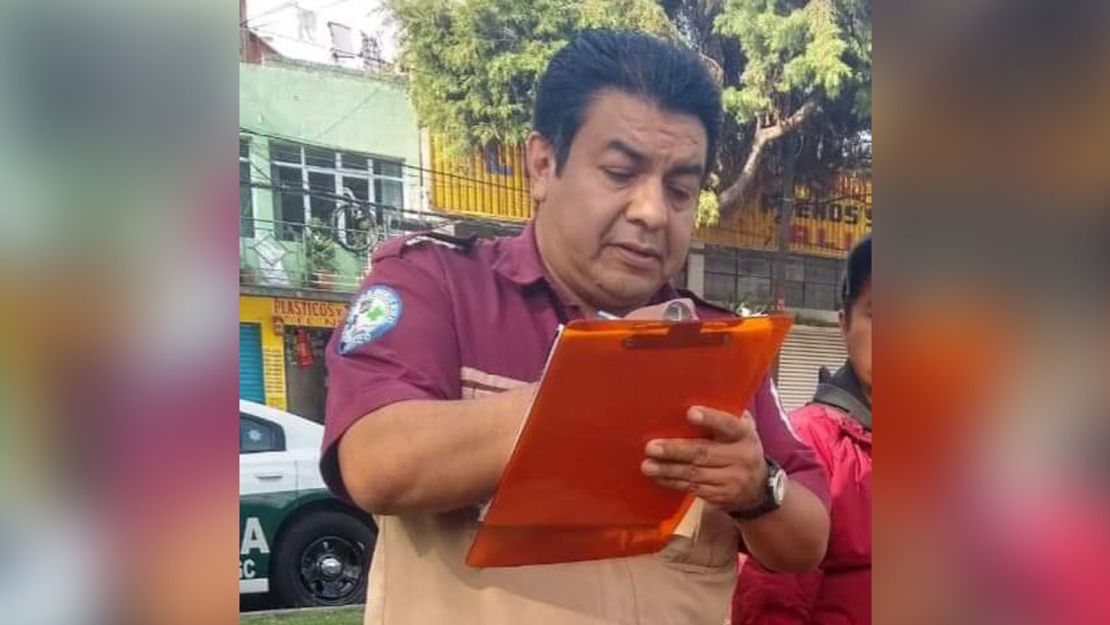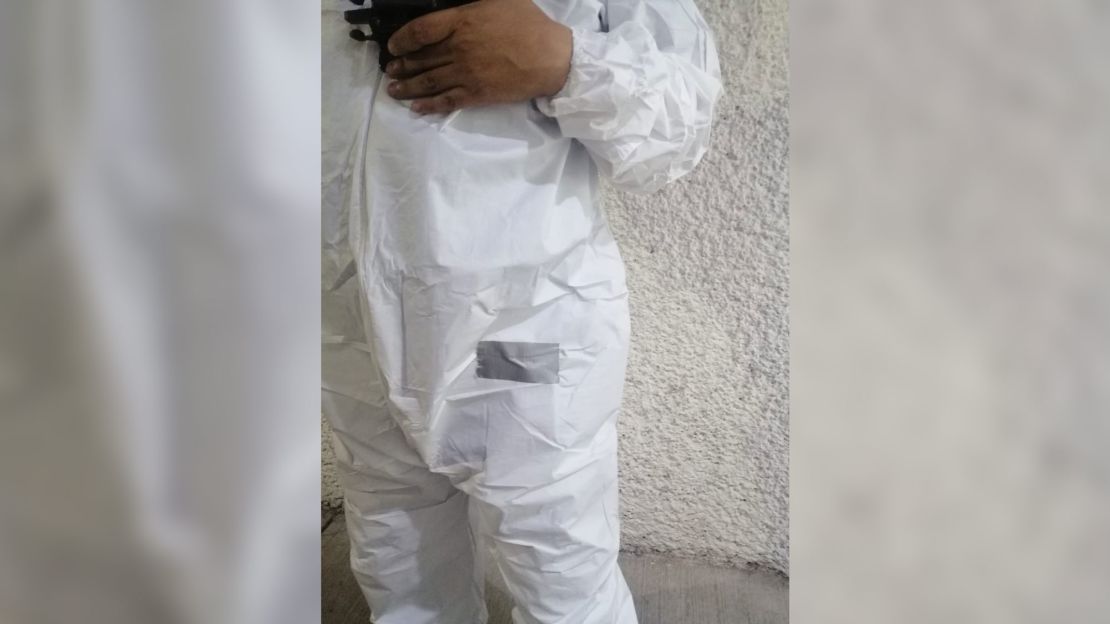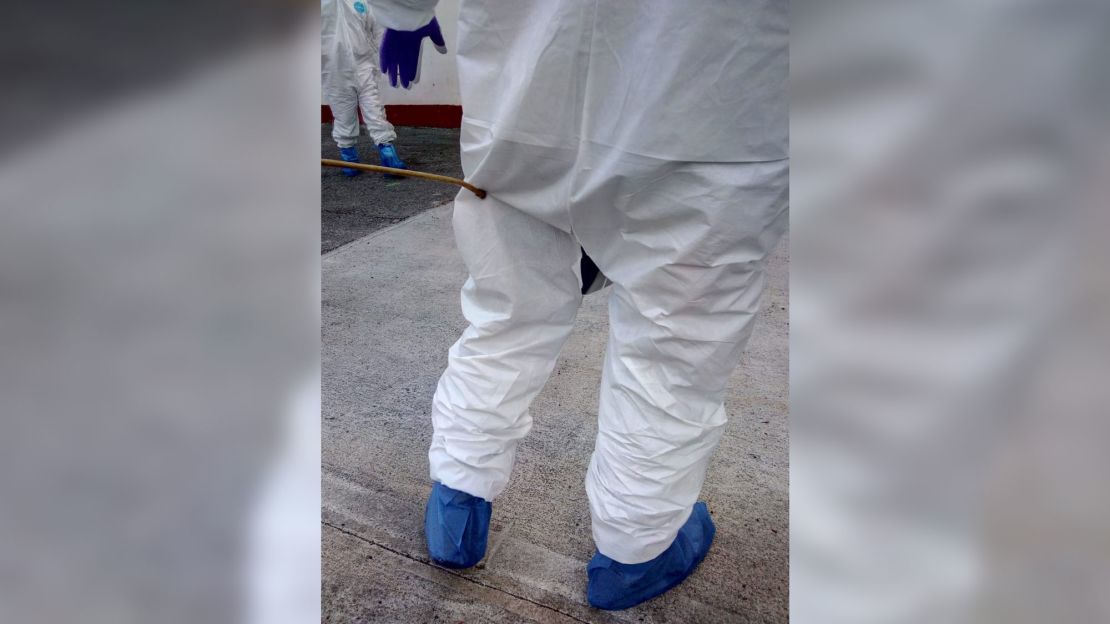Dr. Miguel Ángel Pérez Alvarado was nervous.
The pandemic was bad enough, transporting patient after patient with Covid-19 symptoms, but it was something else that worried the veteran doctor who’d spent 11 years riding in a Mexico City public ambulance.
“At home he would say, ‘Let’s stay apart from each other.’ He wanted to keep us safe because he knew his working conditions weren’t safe,” his wife Nancy Edith Alba Cuéllar told CNN in an interview.
The father of three girls told her his ambulance crew hadn’t been given the proper protective equipment such as gloves, coveralls and masks to keep them safe. He’d complained to his bosses, she said, but they’d respond there wasn’t more money available for better supplies.
Still, he kept doing his job. It was mid-April when he started feeling sick.
By April 20, Dr. Pérez had been hospitalized with a confirmed case of Covid-19. On April 22, he typed out his last message to his family before being intubated.
‘Be very careful. I love you all,’ he texted his wife. He passed away a few days later.

Dr. Pérez was one of several dozen public paramedics who colleagues claim were infected because the government failed to supply the equipment needed against the highly infectious disease.
In response to CNN’s request for comment regarding allegations of improper PPE gear, the federal agencies that manage the paramedics said proper equipment is provided. They declined to provide numbers on how many staff have contracted Covid-19 or have died from it.
CNN interviewed seven paramedics and one doctor who work in Mexico City public ambulances, belonging to two different sections of the country’s Health Ministry. All eight said they feel a sense of betrayal because they argue the government has not helped to keep them safe.
“From the beginning we took precautions,” said Fatima Torrés, a 29-year-old paramedic who tested positive for the virus. “But we didn’t have much material to avoid contamination.”
‘I don’t know anyone who goes to work and isn’t afraid’
Mexico is suffering through the worst days of the epidemic so far, with 129,184 confirmed cases and 15,357 confirmed deaths as of Wednesday, though health officials say the true numbers are likely much higher than that.
On the frontlines are the paramedics, shuttling patients to hospitals across the city. In interviews with CNN, they described many shortcomings with protective equipment, including poor-quality masks (not the N95 masks recommended to protect healthcare workers), no face shields unless they bought their own, a short supply of gloves, poor-quality goggles and coveralls, and no equipment to isolate Covid-19 patients inside ambulances.


Plastic isolation capsules are not provided inside their work vehicles, so paramedics described taping up garbage bags around the cabin to isolate patients as much as possible.
“I don’t know anyone who goes to work and isn’t afraid,” said Oscar Prado, a paramedic who has worked in a public ambulance for 10 years. “The level of stress we’re working under is immense and we’re angry that we’re not getting the proper support from our superiors.”
Every paramedic we spoke to had bought some extra supplies, ranging from N95 masks to swimming goggles and snorkels to hazmat suits.
One man, speaking anonymously for fear of losing his job, said once the supplies he bought run out, he’s not going to go back to work. “It’s not worth it. They’re sending you to war without anything. You don’t send firefighters to a fire without equipment. It’s the same for us.”
A government response that doesn’t add up
Mexico City’s public ambulance fleet is a patchwork group of units, spanning several different government agencies and ministries. The city relies on a large number of private, for-profit ambulances and volunteer groups like the Red Cross to help meet its emergency medical needs.
Even without a global pandemic, paramedics say their numbers are insufficient to service the city’s population of about 21 million people.
Those who spoke to CNN about the poor supplies work for the Institute for Social Security and Services for State Workers, or ISSSTE, and the Regulatory Center for Medical Emergencies, known as CRUM. The two agencies, both under Mexico’s Healthy Ministry, operate about 130 ambulances in the capital.
“[CRUM] guarantees the provision of personal protective supplies, fundamental to carry out their work, recognized as highly specialized and that provide service with the highest standards of care and patient protection,” a CRUM spokesperson said in a statement provided to CNN.
In a one-line WhatsApp message to CNN, ISSSTE said “[our ambulances] have the required supplies.”
Both statements appear to be demonstrably untrue, based on interviews with the staff.
Repeated requests to both agencies for both the official number of ambulance healthcare workers that have contracted the virus and those that have passed away went unanswered.
‘I think about my family’
The epidemic in Mexico has shown no signs of slowing down. “We are experiencing one of the most complex and most dangerous moments of the epidemic,” Cristian Morales, the World Health Organization’s Representative in Mexico, said in a press briefing Tuesday.
That means the demand for emergency medical services is still extremely high.
“I think about my family,” said another paramedic, who asked to remain anonymous. “I think about Dr. Pérez’s family. What if that happened to mine?”
When CNN spoke a few weeks ago to Dr. Pérez’s wife, Nancy, she worried her husband wouldn’t be the last ambulance worker to die.
“There are many of his colleagues, many people that are still at risk and don’t have the necessary supplies to work properly and to be safe,” she said.
Her words were prescient.
Last weekend, 53-year-old Sergio Arturo Mendoza Romero, a paramedic of 33 years and a former colleague of Dr. Pérez, passed away from the coronavirus after being intubated and fighting for his life for weeks in the hospital.
His colleagues believe he contracted the virus on the job.
Meantime, the Pérez family is battling to get help from the government as the doctor was the sole breadwinner.
“I just think it’s unfair. My husband and his colleagues are just doing their jobs. They do it out of necessity and because they love what they do,” Nancy said. “They’re helping their country.”
But in the face of an unprecedented pandemic, it appears their country isn’t helping them.




